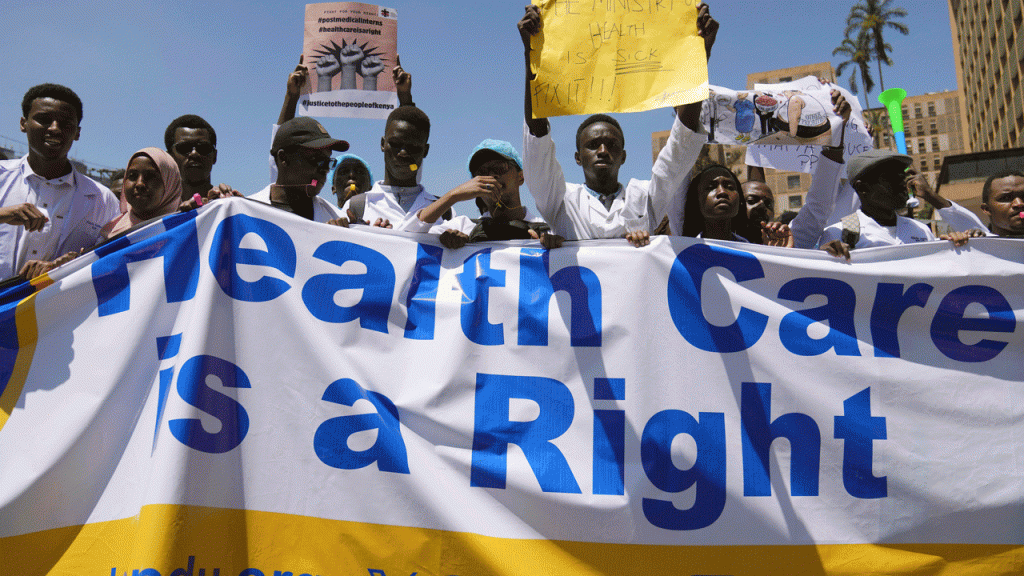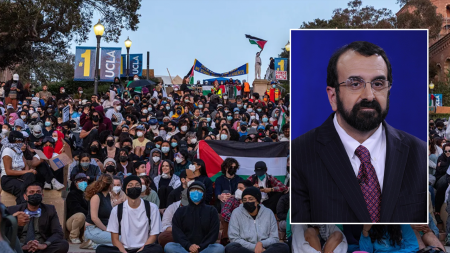The public hospital doctors in Kenya ended their national strike, which began in mid-March, by signing a return to work agreement with the government. The strike was due to poor remuneration and working conditions, and the doctors agreed to trust the government to implement measures to address these issues. The doctors had proved to be better negotiators than the government, according to Kenya’s Health Minister Susan Nakhumicha, who acknowledged that the doctors had put up a tough fight. A labor court had given both parties 48 hours to sign the agreement, and failure to do so would have led to court intervention.
The end of the strike was a relief to millions of Kenyans who rely on public hospitals for health services. Some hospitals had resorted to hiring temporary doctors to manage emergency services during the strike, and the return of the permanent doctors will help restore normal operations. This strike is not the first that Kenyan doctors have staged in recent years; in 2017, a 100-day strike took place to demand better wages and the restoration of dilapidated public-health facilities. The instability caused by strikes in the health sector has highlighted the need for sustainable solutions to prevent future disruptions to essential services.
Kenya is currently facing the aftermath of devastating flooding that has affected a large number of people since the start of the rainy season in mid-March. The impact of the flooding has added to the challenges faced by the health sector in providing adequate care to those in need. The resolution of the doctors’ strike will enable health facilities to focus on addressing the health issues stemming from the flooding, such as injuries, waterborne diseases, and other health concerns. The timing of the strike’s end is crucial in ensuring that the health system can respond effectively to the increased demand for services during this difficult period.
The return to work agreement signed by the public hospital doctors marks a significant step toward resolving the labor issues that led to the strike. By trusting the government to implement the agreed measures, the doctors have shown a willingness to engage in dialogue and work towards finding lasting solutions. This agreement also sets a precedent for future negotiations between healthcare workers and the government, emphasizing the importance of addressing grievances through peaceful means. The end of the strike demonstrates the power of collective bargaining and the potential for positive outcomes when both parties are committed to finding common ground.
The involvement of a labor court in overseeing the signing of the return to work agreement highlights the legal framework within which labor disputes in Kenya are resolved. The court’s intervention provided a deadline for both parties to come to an agreement and prevented a prolonged standoff that could have further disrupted healthcare services. The successful resolution of the strike sets a positive example for how labor disputes can be managed effectively through legal channels, ensuring that the rights of all parties are respected and upheld. Moving forward, this experience can inform future negotiations to prevent similar disruptions in the healthcare sector.
In conclusion, the end of the national strike by Kenya’s public hospital doctors is a significant development that will allow the health sector to focus on providing essential services to those in need. The strike, which began in mid-March, was due to poor remuneration and working conditions, and the return to work agreement signed with the government marks a step towards addressing these issues. The timing of the strike’s resolution amidst ongoing flooding highlights the importance of a functioning healthcare system in times of crisis. By trusting the government to implement the agreed measures, the doctors have shown a commitment to finding lasting solutions through dialogue and negotiation, setting a positive precedent for future labor relations in the healthcare sector.















